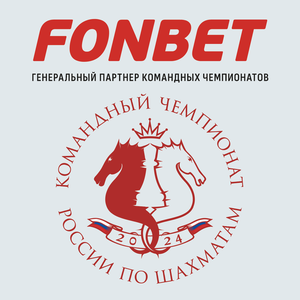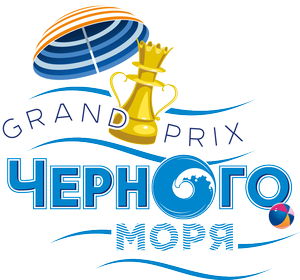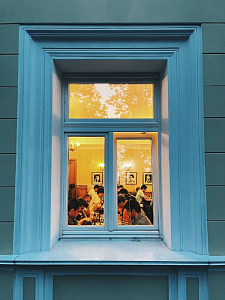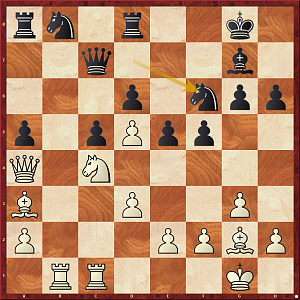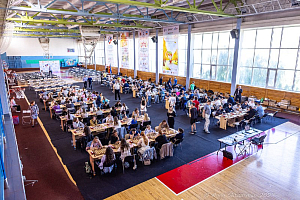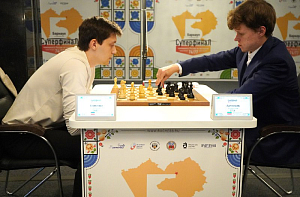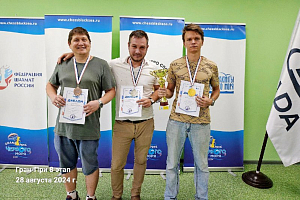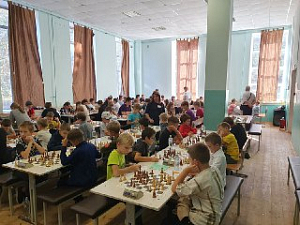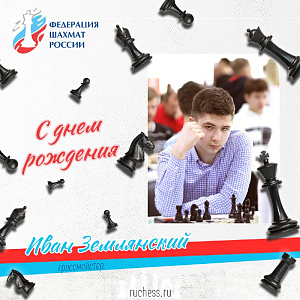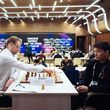Dmitry Jakovenko: Treating Every Opponent with Utter Respect
Russian Cup holder answers Dmitry Kryakvin’s questions
- Please accept my congratulations on your winning the Russian Cup final! I would like to begin out interview with the Grand Prix events, though. Due to a ban on broadcasting moves and Agon’s litigations with chess websites there is little that the chess world knows about what is going on there... Please, tell us about your performance in the series.
Thank you for congratulations! It is quite interesting that I, being a tournament participant myself, was unable to find games of the initial rounds. Broadcasting on chessbomb started only towards round three.
I set no high goals for myself in this FIDE series. All in all, I was No.15 in the standings. It is clear that there is no making it into the top two unless you are extremely lucky. I scored +1 in my first event, sharing 4-8th. I won one game in Sharjah and drew all the rest. I was long among fifty percenters and thought that if I manage to win a game, I would be prepared to take further risks to enter the +2 zone and gain substantial changes for one of the high places. Unfortunately, my expectations never materialized. I pinned my hopes on being paired against one of the rating tailenders, but the system kept pitting me against the likes of Adams, Harikrishna and so on. I drew those games and kept anticipating some weaker player to come my way. It never happened, and I came in with a fifty percent score, going down to Aronian and defeating Rapport.
Therefore, Palma de Majorca had not as much as even theoretical prospects for me to qualify into the Candidates’, and I just went there to play chess. In terms of positions and quality of the games this leg turned into the best one for me since it was only in my encounter with Giri that I had something to worry about, standing worse for the duration of some 2-3 moves. Meanwhile, when a draw was agreed I was already better, same thing happening against Nakamura later. I had practically no problems, but managed to win two games and finish first.
- With the decisive ultimate round battle against Vachier-Lagrave approaching, did you feel it being the game to influence the upcoming championship cycle? Was it much in terms of distress that Maxim, Teimour and you had to cope with?
- While I have nothing to say about Radjabov, Maxim must have been largely affected by it, the way I see it. It was true for me as well. I was definitely unwilling to be the one to blame for Vachier-Lagrave’s overtaking Grischuk! Therefore, I felt like losing that game not at all. Meanwhile, I barely made it out of the opening as I forgot my own home prep and found myself nearly losing. However, I came up with a series of only moves, which resulted in my opponent not keeping nerves under control and going down to a bad blunder. Even so, my position was already preferable when it happened.
It was not without some stress, however. I did not feel like going down and was otherwise preparing for the game, but since it was not my fate that was at stake, it did not cost that much nerves.
- If comparing between a well-established round robin and a new Swiss formats, which one is your choice? You played to both, after all. Have the positive changes, declared by Agon, been achieved in the first place?
I do believe the organizers committed a bad blunder by not introducing the Sofia regulations. They must have been of the opinion that the Swiss system promotes fighting for first, but it was quite the opposite!
As opposed to round robins, where you meet players out of form from time to time who you feel like worth trying to defeat, here everyone is challenged by his direct competitors. This said, nobody was willing to take chances since a failure is known to send you backwards and do the opposite for your competitor. As a result, all tournaments, at least those I was a participant of, were largely haunted by draws. It should be admitted, however, that these draws were not associated with much fighting. I was part of it as well.
Had the event been carried out to the Sofia regulations, the players would have been forced to play on, rather than agreeing to draws. It is clear that if players are allowed to make quick draws, there is going to be no shortage of willing to do so since everyone feels like saving firepower to the best of his abilities.
Still, there is something deserving attention about this format. One of the complains I heard the chess world voicing about the old Grand Prix system is that it is about a very narrow circle of people, 18 players. On the one hand it is normal since no player outside the top twenty is eligible to be part of the series contesting the world champion’s title. This is what the World Cup is for, after all. However, the changes in the chess elite withing two years may be such that even those players making it into the top ten used to make no difference, having to look forward to the following series and automatically missing the current one.
Therefore, extending the list to 24 players seems reasonable in this respect. The Swiss tournaments leave much to be desired in terms of competitiveness, but the Sofia regulations are absolutely essential from my point of view.
- By the way, once we have come around to the subject of specific regulations, I cannot help but asking you about the zero tolerance. You were habitually late for your games at this Russian Cup, just as in old times when people had no idea about future reforms of chess.
- It goes without saying that when this regulation is in place I am never late - it cannot be otherwise. The thing is, I want to go over absolutely every line that is likely to pop up in the game. There seems to be no end of lines you have to check yet! This is how I end up being 3-4 minutes late.
In any case, I am against zero tolerance, especially when the punishment is a defeat. It causes too much pressure on a player. A moderate fine will do in this case, in my viewpoint. Some 500 dollars will be sufficient for a tournament of the Grand Prix level. On the one hand, a player is no longer a subject to that much distress, on the other - nobody would be consciously late to waste your money like that anyway! All in all, the rule’s aim should be to stop people being late. This goal may be achieved through less punitive measures and psychological pressure on the participants. A fine is a much better alternative in this case!
- Let’s now move on to Khanty-Mansiysk, which did without zero tolerances and fines. It looked as though you tried not to burn all your fuel at the rapid Grand Prix, saving it for the upcoming classical section of the Cup, didn’t you?
- The chain of tournaments proved rather challenging, and my goal was taking the classical Cup. I set no goal to defeat anybody as Black in the rapid chess. The only exception was the game with Semen Khanin, whose rating was somewhat lower to other players having White against me. Even so, should my opponent have gone for some theoretical draw in the Berlin, I would not have minded a draw. The way it happened, we had a very interesting and complex type of struggle in Giuoco Piano, which I had an upper hand in.
However, when playing White pieces, I was aggressive and did everything to succeed. Round one was a draw against Pridorozhni, upon which I started winning every game save for the final one against Chigaev. At that moment I was of the opinion that a draw was likely enough to land me first and was rather skeptical that Pavel Ponkratov could win both final games. However, it happened the way it happened. It might look as if I slowed down at the home stretch, but I was Black in two out of three last encounters. Anyway, the goal of not burning up too much firepower was achieved since five rapid games per day is a serious undertaking if played to the maximum of your potential.
- Do you often participate in tournaments with short-time control?
- On the contrary, I do it quite infrequently. This year it was only the rapid Grand Prix final and the Russian individual and team rapid championships, Last year I also played in Khanty-Mansiysk and then headed for the world rapid and blitz championships in Qatar.
- Are you going to the Saud Arabia event?
- My decision is not to go. But I sell my opinion to nobody, everyone is free to do as he pleases. Let’s wait and see what is going to happen next year; Saudi Arabia seems to be on the way of progressive changes now. If they stick to this course, I may reconsider my point of view.
- Our website readers keep wondering that Dmitry Jakovenko does not mind participating in the Russian Cup finals, while this cannot be said about other leading grandmasters. The only exception was the last year’s rapid Grand Prix winner, Daniil Dubov, who took advantage of the Russian Chess Federation’s quota back in 2016…
- This is a widely known secret. Increasing the prize fund is a key to this secret. As for me, I keep playing because the event takes place in my native region.
- Let’s move on the classical chess now. By the way, one of the European websites popped up with: “Why do the Russians have so few rounds in the final? Let Jakovenko finish the year as Carlen No.2!”
- The number of my victories was a surprise even to me. Especially surprising was that I managed to win all my black games, which looks quite a statistical anomaly.
- Does having to realign yourself from facing the likes of Aronian and Vachier-Lagrave to players of a younger generation rated around 2500-2600 comes as a psychological challenge for you?
- The realignment comes as nothing special, but rather as a kind of variety. Here, at last, I can enjoy some aggressive chess! This is not the case when I face Aronian and Vachier-Lagrave, which means playing with an enhanced or even utmost margin of safety. An opportunity to enjoy more enterprising chess presents itself to me here at home. A good thing is when you are sure in your home preparation, safeguarding you against any mind-boggling novelty shown by a supercomputer only.
On the other hand, home chess comes with a higher threshold of responsibility. I set it higher myself, first of all. Going down to Aronian is one thing, while doing so to an opponent rated 200 points below you is something else. You have to play aggressive chess to win, but at the same time you are not willing to go down. A golden mean has to be found.
- Are you privy to a Cup winning secret, perhaps?
- A simple math shows that my victories in the latest four Cups amount to winning 16 matchups in a row. They included both absolute and Armageddon victories, of course. Still, the possibility of this event ever happening is highly unlikely from the mathematical point of view, no matter what favorite I might be in any individual contest!
One of my secrets is treating every opponent with utter respect. I do no feel like obliged to defeat a certain category of players. I just play my opening, realizing that there is always a probability of my opponent having analyzed it thoroughly and, with all moves played correctly, the game will be a draw. It does not force me into something like 1.Kf3, 2.g3, 3.b3 just to avoid a draw and channel the game into a full-fledged fight instead. As opposed to this, I stick to my main theory and play normal positions and, should an opponent be well prepared, there is going to be a draw. This is not the end of the world.
I ruled out the chances of a tie-break with no opponent. Let us suppose that I make a draw as White against Paravyan in round two, then handle the opening as Black into the Berlin. White has many options to kill tension immediately, and I was going to sidestep it in no way. If he wants a draw - let it be so - we will take it into the rapid chess then. This approach allows you to stay calm without having to overstretch yourself.
It is perhaps the opponents rated below 2200 that I feel more or less obliged to win. I treat any opponent above 2200 with all seriousness. I always prepare for the game, refresh my opening theory and do not hide my ideas, so that introducing a novelty is not out of the question.
- Which matchup proved the most challenging in this Cup after all?
It was perhaps the one against Paravyan. Game one took a very interesting course, and I was aware of a continuation leading to a draw. I decided against it and opted for an alternative without having given it a thorough appraisal. It was not before I made a move that I realized I was simply worse. I did not have much time on my clock, but pulled myself together and was lucky to spot an unexpected draw. My next game as Black also turned out badly for me, only it was David to commit a decisive blunder at the end.
It goes without saying that my final match with Dmitry Kokarev was anything but simple, but not so nervous. I was not that well prepared for the game as White, and Dima managed to surprise me in the opening to make a quick draw. However, it was not that distressing as the game with Paravyan. I was after maintaining tension on the board as Black, but set no goal to win the game by all means, realizing that the position was objectively equal. Dima’s failure by taking the b2-pawn came as something unexpected to me since he was immediately lost as a result.
- Denis Khismatullin once mentioned you as a player working on chess more than anybody else he knew. Is it still true?
- It is quite the opposite by my own standards as I do not think I work enough on chess. I mean not enough in terns of goals I set in front of myself. May be Denis mentioned my working on chess during the tournament, over the board? One of my strong points several years ago was my utter focus on the game. I allowed myself no lapses of concentration whatsoever! It is no longer that easy for me, but my commitment to the game while it is in progress is on a high level still.
- Once we have come around to the subject of high and the highest of levels, why not recall AlphaZero? Knowing your scientific interest in chess technologies of the future, could you please share your opinion about the screaming success demonstrated by the neural mind?
- It is a double-edged one. On the one hand they keep claiming that AlphaZero’s superiority in hardware was significant, on the other hand that Stockfish’s settings were other than optimal. Roughly speaking, if AlphaZero was running on CPUs 50 times faster than those used by its opponent, it means that Stockfish should have been given 50 minutes per move, rather than one. Every chess professional understands, however, how stronger Stockfish would have been given that amount of calculating time. Stockfish’s performance would have been no less incredible. It is not impossible that Stockfish, having 50 minutes per move, would have outplayed Stockfish, having a minute only, by a margin even larger than that of AlphaZero’s.
This is why it came as no surprise to me. I am not of the opinion that there has advanced a new era in chess, equal to extraterrestrials showing us how to play, as was voiced in certain interviews. If you install Stockfish on a powerful supercomputer, it is likely to perform no equally well.
There is one aspect that intrigues me deeply, however. This is about the fact (at least you may deduce it from the report issued by Google) that AlphaZero processes only 80 000 positions per second. This is approximately a thousand times slower than Stockfish. Running on faster hardware implies that AlphaZero spends the majority of time evaluating each particular setup. The evaluation algorithm seems to be somewhat complex, thousands of times slower than that of Stockfish’s, but rather effective at that since it makes for such a level of performance. This is what interests me most. Even from a mathematical point of view it is likely to mean (the point which actually found its way into the report) that with the increase of thinking time the superiority of AlphaZero over Stockfish in terms of relative strength tends to increase. Should you give 10 times as much time to both engines, AlphaZerо will benefit more. This is how it should be, if stakes are placed on positional evaluation and quick cutoff of poor continuations.
The above is true, however, if the reported number of analyzed positions is interpreted by us in the same way as by the Google specialists. Let us recall that there exist engines that process fewer lines than Stockfish, but perform no weaker at that. The number of positions is an ambiguous notion. As far as I know, there are not a few engines that are programed so as to double check captures and checks upon reaching a certain final position before terminating the calculation process. It is designed to prevent such situations when the engine may evaluate the position positively while in fact a queen is dropped a move later. Does Google account for such positions as well? This simple thing is likely to significantly increase the number of calculated positions.
Those who deal with chess engines surely have something to say about this, but, unfortunately, many aspects concerning AlphaZero are covered by a veil of secrecy.
- What else do we need to evaluate the new neural network’s potential?
- I might be impressed by AlphaZero if its games are rechecked by the leading correspondence players, who will then confirm that the program makes such moves that Stockfish is unable to come up with even upon lengthy 30 minute- or one hour thinking, or believes that these moves are inferior to the alternative continuations, whereas AlphaZero’s case is the right one after all. Even if there are several such moves within the 10 games known to us, it would be a valid argument in favor of AlphaZero’s ultramodern level of performance. But this is yet to be checked.
It would be superb if AlphaZero takes part and shines in the engine's world championship, which has hardware, time control and setting requirements specified for its participants. It would certainly help clear all doubts. However, the certainty of it happening is far from obvious for me yet.
I do not think AlphaZero has surpassed the level of modern correspondence play, while it should be noted that Stockfish offered no real resistance. The Queen's Indian Defense games that Stockfish lost, devoid of the opening book, were not played to the mainline theory. The mainline theory claims that it is a draw in the end. It would be very interesting to see AlphaZero’s reaction to Stockfish’s strict abiding by the theory. This was not the case as Stockfish sidestepped earlier to not the strongest sidelines because a minute was not enough for him to come up with the most precise rejoinders. Therefore, I am not among those who rejoice about AlphaZero’s improving the human theory and making a quantum leap.
As far as I understand, each subsequent version of Stockfish is superior to its predecessor by 30-40 Elo rating points. This said, AlphaZero’s superiority in this match is equal to 100 points. All other things being equal, it amounts to just 3-4 years of program developers’ efforts and is not about some fantastic gap.
- Beginning with the Anand - Topalov match of 2010 the world of chess fans is full of rumors about elite grandmasters’ home supercomputers. As if pressing the backspace generates such a line that no mortal has ever dreamed of. I wonder, what type of engine is used by the world No.21 Dmitry Jakovenko?
- This supercomputer story is not about me. My Stockfish handles 70-80 million positions per second, an amount equivalent to that demonstrated in the match. That is, I use CPUs available on the market and do not put together some computing clusters. After all, the prize pool that I usually gather is not that excessive to justify it even from the economical point of view. I would not be at all surprised if Stockfish, running on my computer, proves superior to Topalov’s supercomputer modules of 2010 since 7 years is quite a time in terms of engines and programs adding much in performance and class.
- Has it ever happened to you that after running into an elite player’s computer novelty your engine would never find it afterwards?
- It has practically never been the case. Something of the kind, for example, occurred when I went down to Morozevich as Black in a sharp line, but it was always about old lines of 2-3 years ago that were not checked before the game. I would then set the position up on a new engine running on a modern equipment, and the opponent’s move would be discovered without delay. Sharp openings with their forced type of play do not form the core of my opening repertoire, in which the price of computer analysis is significantly higher.
- Who do you think will shine in the Candidates Tournament and if he has chances to dethrone Carlsen?
- Frankly speaking, Carlsen’s play in London was so underwhelming that any runner-up is likely to be a challenge. I also noted at the previous tournaments that the champion is no longer that precise in converting. This is also true about endgames. He lost a winning endgame to Vachier-Lagrave by suddenly blundering everything. It looks as if Carlsen’s power has diminished, and there are not a few capable of challenging him.
His going back to normal level would certainly make a difference... However, let us not forget about the chessisdraw tendency. You can make many draws in a brief matchup, then win a game due to opponent’s error and end up superior as a result. The chances to dethrone the champion are, of course, there.
Besides, I remember someone saying that, “A Candidates tournament participant and the same person winning it are two quite different players already!” Therefore, any player to strike first is going to immediately enjoy more chances.
The only game that I lost during the FIDE Grand Prix cycle was to Aronian, who delivered a really impressive performance. It may be so that Aronian’s ingenious play might be very inconvenient for Carlsen. There was a moment when I believed Caruana to have decent chances for the title - he is known to calculate well and commit very few blunders. However, his performance has been on the slump as of lately.
It goes without saying that I pin my hopes on the Russian players!
- The most radical proponents of the younger generation triumph claim that 30+ have chances no longer… Do you think the youngsters are superior due to so much energy in them?
- It may well be that 30+ players are not so well suited for longer distances, but it should not matter that much for any individual tournament or matchup. Judging by myself, I may be less motivated from time to time, feel unwilling to go all out and otherwise experience difficulties tuning myself up for certain events. Nevertheless, in the face of crucial competitions or when setting high goals, I am quite a competitive player! 35 years is as good an age to perform on a high level and refute that power decline theory. In my opinion, the decline starts after 35.
- I have a couple more questions coming from the RCF website readers. A traditional one is about the books your read.
- I have just finished the recently popular novel The Three-Body Problem by the Chinese science fiction writer Liu Cixin. I have two pieces of advice for those who might want to read it. The first is to avoid reading the cover page of book one. I was surprised by the brief description of contents to be such a spoiler and give away that which should become known towards the middle of the book. Therefore, do not read the book cover!
The second is that the followup volumes of the series are much more exciting than the first one! This is also surprising since it is usually vice versa more often than not. I felt somewhat disappointed after having finished volume one. I purchased the book by the Chinese science fiction writer, thinking that it should be interesting because of it being a totally different culture and society, giving insights into the communist China and cultural revolution. I was first of all attracted by the title, realizing that a book bearing a title like this has to be completely different from the likes of Mighty Cruiser. It should be good!
I liked volumes two and three and I recommend this book to anyone fond of science fiction. I am just not sure that volumes two and three are sold in Russia in paper. I had to content myself with downloading a digital version. The Three-Body Problem won the 2015 Hugo Award for Best Novel.
- They ask if you plan to write a chess book? Why are there so few Russian books from the leading grandmasters?
- It once crossed my mind to write a book titled My Best Endgames, this part of the game being my strongest. However, with a really high threshold of requirements that I set for my games, it is other than obvious that I am going to put together enough material. I am inclined to believe that no game of mine does without some errors and that no conversion was as perfect as I would like it to be.
Despite this, there is a number of worthy endgames, and it might be interesting to share my vision of the endgame play.
Why do they no longer publish books with own games commented? This is, perhaps, due to so much efforts that you need to put into it. Nowadays a good quality commentary is computer-aided in no small part. It is no longer sufficient to share your train of thinking during the game and pepper it up with some lines. It took almost a year even for Kasparov to finish his series books. It would be hard for an active chess player to devote time for it.
Besides, it is not at all clear how a strong grandmaster is supposed to go about writing manuals on chess openings. Are you economical with the truth or come out into the open with all your lines? Among the leading grandmasters only Peter Svidler stands out in this respect. I admire to hear him explaining the opening lines in his video series and then employing them in own games! This is amazing! However, Peter is the only one of a kind!
- Do you read modern chess books yourself, such as, for example, the Negi’s series? Is there anything that you would like to recommend to the rising generation?
- I read no books at all. I have a couple of puzzle books that help me restore my form and enhance my tactical skills before the events. All in all, Negi is unlikely to come up with something in the Berlin of mine that I would not be aware of. It seems like a low efficiency time to me, having to sift through all author-analyzed material and trying to find out what has remained unsaid. Even if I did some reading in the past, such as Avrukh or Sakaev's books, it was merely for the purpose of reading up on sidelines. There is no committing everything to memory, whereas all you need to do in the latter case is just go over the diagrammed positions and you are good to go. For the mainlines, however, I trust no theory but my own.
As opposed to this, it would be a good option for rising players to buy a good quality book that suits his or her tastes and style. Back in its days the series Anand’s White Openings by Khalifman or books by Avrukh definitely belonged to this category. However, you still need a qualified opinion from a classy player as to what you better pay attention to. It will help save a huge amount of efforts!
Young players should by no means go into an unlimited computer analysis of the openings. There is still much room for them to progress in their play. They can progress both tactically and strategically. As for me, I have become set in my ways of playing. Therefore, my success lies though going deep into my openings. I’d say this is definitely a dead end for young players!
- Let me congratulate you once more on your success and say thanks for the interview!








